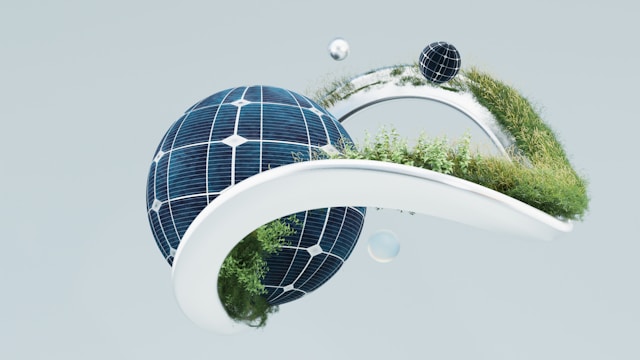Earth Day, which falls on April 22, is a vital reminder of our collective responsibility to protect and nurture our planet. This year’s theme, “Our Power, Our Planet,” resonates deeply with the growing understanding that the innovative solutions we champion today will determine the sustainability of our tomorrow.
At the heart of this movement are companies like IFS and data centers like Start Campus, demonstrating how technology, when wielded responsibly, can be a powerful force for environmental good.
AI for Sustainability
Sophie Graham, Chief Sustainability Officer at IFS, aptly points out the dual nature of emerging technologies like Artificial Intelligence (AI). “This Earth Day, we’re reminded that when used responsibly, innovation can be a powerful force for good,” she said. “We see industrial AI playing a vital role in helping high-impact, yet hard-to-abate, sectors like manufacturing and utilities become more sustainable.” She also acknowledged the “obvious paradox” of AI’s increasing energy demands, with global data center electricity consumption projected to more than double by 2030.
However, Graham emphasized AI’s immense potential to optimize resource use and accelerate the transition to a greener future. She noted that AI offers the ability to optimize resource use, accelerate innovation in renewable technologies and build grid resilience in a way that no other tool can.
IFS has witnessed this firsthand, with customers leveraging AI to streamline service management, achieving a “typical travel time reduction of 37% and helping them towards net zero goals while boosting productivity,” Graham said. Furthermore, AI is enhancing the reliability of renewable energy assets by analyzing diverse datasets to improve performance and minimize outages. “With the right guardrails in place and widespread adoption, AI will be an important player in the energy transition,” Graham said.
Innovation and Sustainability
Echoing this sentiment, India Oliveira, Sustainability Manager at Start Campus, highlighted how innovation can harmonize with nature. “The theme for Earth Day this year, ‘Our Power, Our Planet,’ perfectly aligns with our mission at Start Campus,” she said. “We recognize that the power to protect our planet lies in the innovative solutions we implement today. As Europe’s most sustainable data center, we are showing how technology and nature can work harmoniously together.”
Oliveria gave the example of Start Campus exemplifying this harmony: “Our seawater cooling technology demonstrates how we can harness natural processes to reduce resource consumption. By utilizing ocean water for cooling at scale, we’ve significantly decreased freshwater usage while maintaining energy efficiency, proving that technological advancement and environmental protection can go hand in hand.”
The center’s commitment extends beyond technological innovation to a deep respect for biodiversity. “When developing our campus, our commitment to biodiversity is reflected in our comprehensive wildlife translocation program,” Oliveria noted. “Rather than clearing habitats, we’ve worked alongside academic partners to preserve and study these ecosystems, maintaining the wild character of the surrounding landscape and contributing to a scientific understanding of habitat adaptation.”
This Earth Day, the insights from IFS and Start Campus underscore a crucial message: our power to protect the planet lies in our ability to innovate responsibly and with intention.
What this Means for ERP Insiders
Integrated AI can enhance operational efficiency and sustainability. IFS’ Industrial AI, embedded within the IFS Cloud ERP platform, offers tangible benefits for optimizing operations and driving sustainability. For ERP users, this translates to AI-powered insights that can also advance their sustainability goals besides reducing operational costs and boosting productivity. By monitoring energy consumption, optimizing asset performance to reduce waste, and providing visibility into supplier sustainability, IFS helps users track progress toward environmental targets and comply with regulations.
Cloud ERP allows users to manage and report on sustainability metrics, too. Cloud ERP capabilities allow users to eliminate data silos and provide a comprehensive understanding of the business’s environmental impact. For example, through its Sustainability Management capabilities integrated within the IFS Cloud, users can collect, track, and report Environmental, Social, and Governance (ESG) data required for compliance with regulations like the Corporate Sustainability Reporting Directive.
Invest in solutions designed for long-term agility and evolving market demand. Leverage industrial AI and sustainability capabilities within ERP platforms like IFS Cloud to adopt new AI and sustainability features as their needs evolve and as technology advances. Users can also utilize these platforms to innovate using the latest AI capabilities and gain a competitive advantage by proactively integrating sustainability into core operations and leveraging AI for business optimization.





